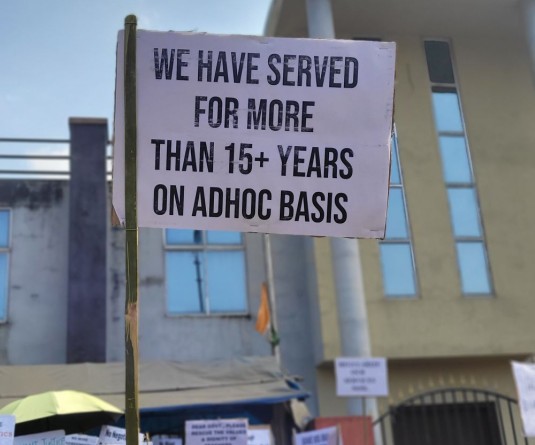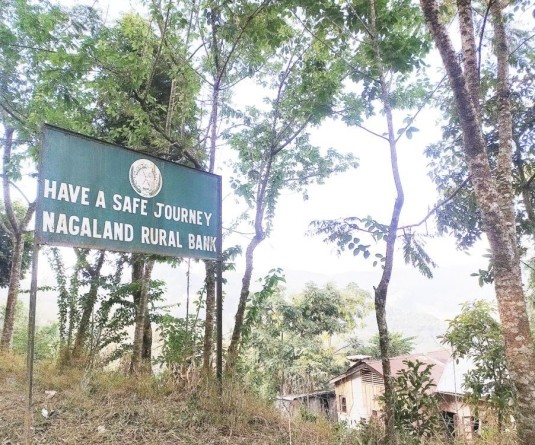Section of participants during the celebration of International Women’s Day event held in Chizami on March 8. (Photo Courtesy: NEN)
Chizami, March 8 (MExN): “Gender issues are seen as women’s issues, but it must be seen as a social issue. They cannot be tackled by women organisations alone, no matter how strong the organisation is,” noted Kulili Tara, one of the 21 women farmer-weavers who participated in the extempore speech competition at the International Women’s Day event in Chizami on March 8.
“It needs the concerted effort from diverse stakeholders including the church institutions, community-based organisations, NGOs and Government to come and work together. Collaborations and solidarity are keys,” Kali asserted.
The event was organised by North East Network (NEN) Nagaland, together with communities of Phek district with the theme ‘gender equality today for a sustainable tomorrow’ at the NEN Resource Centre, Chizami and Women Resource Centre, Runguzu Nasa on March 8.
An update from NEN stated that altogether 250 participants comprising of women farmers, weavers, community leaders from 28 villages under Phek district, and representatives from several government departments converged. The event aimed to celebrate women’s contribution and achievements, and their leadership within their household and communities, and build solidarity. It also aimed to highlight and recognize women’s agency and their capacity to bring about change in their lives and communities.
Voices of women were heard through articulation of their lived experiences, opinions, perspectives and aspirations, on various topics including gender-based violence, climate change, livelihoods, education, sustainable development etc, it stated.
Co-organised with SEWA Nagaland, the event at Runguzu Nasawas graced by Omegali, EAC Chetheba as the guest speaker shared on the importance of environmental sustainability and the need to contribute toward management of climate change related impacts. She suggested product innovations such as plates and cups from natural fibres that create livelihood for the communities, while protecting the environment.
She noted, “As women we all have the innate ability to be selfless, have concern for each other, solve problems and build bonds. Through these abilities, we must also work towards the progress and development of our community and State at large.”
At Chizami, Zachivelu K Dolie, Deputy Director of Sericulture, Government of Nagaland as guest speaker noted that ‘women are blessed with multiple talents and hence can do and achieve much more than men’. She stressed that our communities need to move away from our old practices of defining the work of women versus men and changing this narrative has to start with “change from within our kitchens, our homes”.
Speaking of the many opportunities open to women and girls, she encouraged the participants to pass on the knowledge on food, farming, weaving, etc to children, irrespective of gender. She further highlighted on the benefits of sericulture as a livelihood option for the weaving community, especially for women.
Both the events were marked by speeches and cultural performances, along with activities that included role play, exhibitions, posters and singing and prayer.





